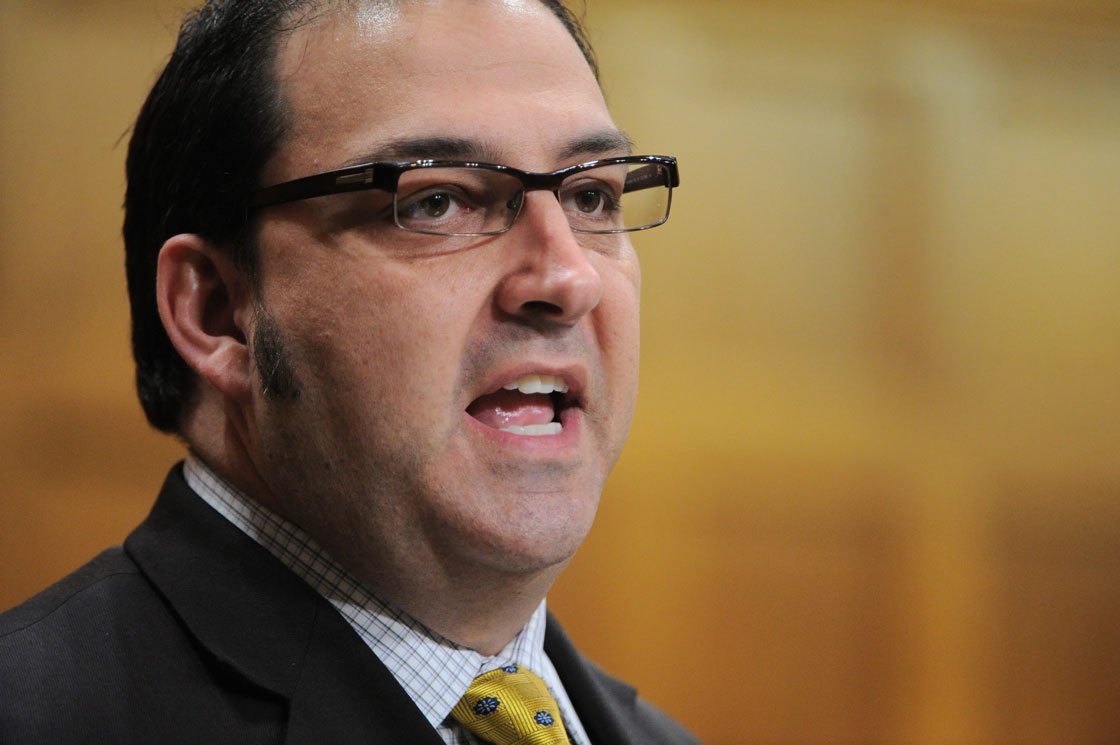Of all the folks who should be raising a stink about the proposed tax hikes on imported goods the Conservatives discreetly slipped into the budget, it would be, well, taxpayers.

Opposition parties have howled this week over a proposal by Finance Minister Jim Flaherty to eliminate “preferential” trade status of 72 countries whose goods Canada imports – a move that threatens to cost households upwards of $330 million a year, according to the budget itself.
It’s notable, though, that there hasn’t been any fuming from the Canadian Taxpayers Federation.
“We’re not in favour of it, but we understand why they’re doing it,” Gregory Thomas, the organization’s federal director, said Wednesday.
Thomas figures Canada could use the leverage heading into trade negotiations with several of the nations who will lose preferred trading status.
“You don’t bring a knife to a gun fight and you don’t show up to trade negotiations when you’ve maintained no tariffs on all the things that matter,” he said.
The move to phase out General Preferential Tariff status for trading partners such as China, Singapore and Korea will raise costs by several percent on thousands of products entering the country, from wigs to paintbrushes to bicycles. And yes, perhaps even iPods.
The first phase will foist about $83 million on consumers in 2014, by the federation’s estimates. The full elimination of the status will kick in on April, 1, 2015 resulting another $250 million being added to the collective price tag on a multitude of imported goods.
New Democrats and Liberals have blasted the move as a blatant tax hike and duplicitous flip-flop from a government that counts lower taxes as a core principle.
“It’s a tax on consumers, retailers and industry,” Geoff Regan, Liberal consumer affairs critic and Halifax-West MP, said Wednesday in a phone interview. “This is an issue we’re going to keep banging away at.”
In a separate interview, NDP consumer affairs critic Glenn Thibeault said he will propose a formal motion on Thursday seeking a review by the industry committee of the increases’ impact on consumers and business, which Regan says the Liberals support.
“We’re saying this will cost Canadians more. The Conservatives are saying it won’t. The study will make it clear for Parliamentarians and all Canadians to see that yes, these costs will have an impact,” Thibeault, an MP for Sudbury, said.
But the taxpayer federation maintains the tariff hikes are about creating leverage – both with countries Canada is currently in negotiations with, such as Malaysia, Singapore and Vietnam; and ones Ottawa hopes to secure better trade terms with, such as China and Korea.
“Canadians trying to export into some of these nations run into a brick wall,” the federation’s Thomas said. “We don’t support raising taxes, but we see what this is.”
“I don’t know why they’re not up in arms,” Thibeault said of the CTF. “Canadians are calling me up asking, ‘Why is it going to cost me more? I’m struggling to get by’.”
The Harper government argues these changes just eliminate special treatment for countries that no longer need it. The General Preferential Tariff “is not a ‘free trade’ program,” Dan Miles, spokesman for Finance Minister Jim Flaherty, said in an e-mail. “It is a foreign aid program designed in the 1970s to help the very poorest, developing countries. It needed to be updated.”
The countries Ottawa is proposing to end GPT status for are at a point in their economic evolution where they are able to engage in two-way trade agreements that benefit each economy equally, the taxpayer federation and others suggest.
Yet some, like business professor Mike Moffatt at the Richard Ivey School of Business at the University of Western Ontario, aren’t fully convinced the move is aimed at improving the country’s bargaining position, either.
“Maybe this is what they’re thinking but it seems like an odd move to me. Our opening move is to insult our trading partners?” he said. “I think it’s just a way to raise $330 million, to be honest. It’s a really nice way to raise revenue without claiming your raising taxes.”
Moffatt has been an outspoken opponent of the tariff proposal, which was buried in last month’s federal budget behind headline-grabbing tax breaks on items like baby clothes and hockey equipment.
The professor says the estimated savings for families from those measures will be more than wiped out by the subsequent tariff increases.
The burden won’t just be felt by consumers and households, he warns. Businesses like retailers will see their competitive position slip even more compared to American shops just over the border as well as foreign online competitors. Manufacturers who use goods affected by the price jumps will suffer from higher costs, too.
Still, Moffatt concedes the measures allow for a meaningful window of time for Ottawa to lock in favourable trade terms in exchange for restoring lower tariff rates.
The strategy would fit with the Harper government’s push to refocus the economy from household spending – the source of Canada’s economic growth for years but a force now tapering off – back onto growth fueled by domestic companies producing goods for global markets.
“It is telling that these measures don’t come into force until 2015, so that does support the leverage argument,” he said. “It gives them a bit of a timeline to get these deals done.”
That is, Moffatt cautioned, “so long as it works” – and doesn’t backfire by creating tensions that may drag on talks.
“If this move causes trading partners to leave the table, then it’s counterproductive,” he said.
“And it’s just going to be that much harder for Canadian companies, retailers and consumers.”


Comments